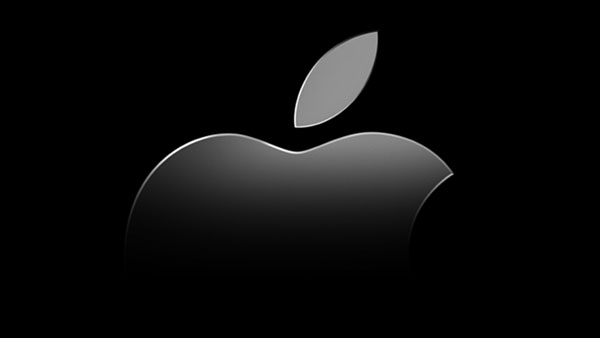
Apple has risen to meteoric heights over the last decade, a series of victories that saw them go from being a curio computer company barely sustaining itself to being named the most valuable technology company in the world at a cool $222 billion (May 2011).
Without exaggeration Apple and Steve Jobs have changed the world, vastly improving the way we consume digital entertainment in the process, and steamrolling the competition of any industry they decide to get into. The rest of the world is continually forced to adapt to a changing landscape forged by Apple.
The first milestone in the company’s post-PC roadmap: iPod and iTunes made them leaders of a digital music revolution that revived a declining music industry, creating a workable online business model and launching an iconic small white box with a scroll-wheel to unparalleled success.
The backbone of iTunes put them in a powerful and advantageous position; they had network expertise, millions of registered customers with credit cards, a friendly UI fronting a streamlined payment process; all of which allowed an easy transition to other kinds of content delivery. Opening iTunes to movies and television in hindsight seems an almost negligible event on the road of inevitability. What happened next would be another game-changer.
Then the iPhone happened.
Apple caught the cell phone industry sleeping and drew up a new template for what the modern phone should look like, spurring a rapid industry-wide transition to touch screens, mobile apps, gyroscopes and accelerometers. But the copycats can never replicate iPhone’s success with any me-too device. Hardware is easily copied; Apple’s software catalogue and customer base is not.
Apple customers buy a ton of apps, with more being added to the Apple store at a perpetually increasing rate. Programmers have never had it so good. We went from the days of PC domination when you’d need a website to spread the word and distribute your software which nobody would pay for anyway, routinely pirating the shit out of it with no remorse. From that, to a platform that has one central store visible to many millions of people who are very willing to pay for anything. At time of writing the top-selling iPhone app in the UK is ‘Keith Lemon’s Mouthboard’ which has you placing the device over your own mouth to make it look like you have the mouth of Keith Lemon.
Very basic games which prior to iPhone would have been free Flash-based games on the web, can now sell for a few quid a pop in such massive quantities that in some special cases the one-or-two-man creation team becomes rich. Mobile gaming companies have sprung up to take advantage of these market conditions, with income entirely derived from the users of Apple devices.
Bumbling into gaming…
Entering the music and movie industries was the result of careful planning and focus. Becoming a force in the gaming industry seemed to fall on Apple by accident. Gaming after all is just one of many categories of app they offer with no particular spotlight, and none of the devices in the iOS family have dedicated hard buttons for gaming. It didn’t take long for games to become the dominant app category by an enormous margin and it’s not difficult to see why. You only ever need one of any gadget-type app like a barcode scanner or satnav. But games, like music, are entertainment, for which we have an insatiable appetite. At this time 9 of the top 10 best-selling apps are games, as is most often the case.
Is Apple interested in applying its masterstroke to the videogame world? So far they are taking the reactive approach, declaring at a developer conference that their platform has the most games by numbers (a consequence of their platform having the most of everything) and making direct comparisons to DS and PSP. Quantity is far from the only metric we have to compare though; few would go as far to say that iPhone is already the best gaming platform in the world. Apple are not interested in compromising the intuitive and attractive design of its phones to add buttons solely for gaming, although it is in no way actively stifling game creators. They make massive performance gains in every annual hardware update which benefits games more than anything, and they at least made a barebones attempt at a gaming network with Game Center version 1.
What console makers can learn from Apple
Although currently posing no direct threat, without doubt there are lessons that can be applied to the console business. As console development costs rise and these costs are passed on to the consumer, the market becomes increasingly difficult to tap with consumers able to afford fewer games. The one-size-fits-all pricing has long been seen as a broken model by many. Apple’s App Store by comparison has a wide range of prices to suit any wallet, and it’s interesting to note that a £1.79 game can move in enough volume to make more money than one priced at £11.99. The highest grossing game is rarely the most expensive.
The app currently generating the most cash is Tap Zoo, which is free to play. Giving the game away and then cleverly charging for in-game items once the player is hooked is a very interesting model that is proven to work, but which has not successfully been applied to the console market yet. This model allows a very low barrier for entry which means a greater number of games can be consumed and you end up paying more for the ones you enjoy the most. A friend of mine confessed to paying in excess of £100 real currency for in-game gold pieces in Infinity Blade, a game which sells for £1.79 on the App Store.
A more obvious revenue stream is the use of advertisements. Apple has an SDK for this, offering developers the option to use ‘iAds’ in their apps. These are non-intrusive, attractive, interactive ads tailored for the device, and I imagine they have a way of tracking whether or not the end user has explored or ignored the ad to measure effectiveness. It has been going well apparently; “iAds twice as effective as TV” says a Nielsen study, quote from Apple’s website. Yet we’ve had no real push to integrate ads into console software. It will take leadership from the platform holders, the same way Apple has provided a solution for its developer community.
Multiple revenue pathways is not the only advantage of the Apple ecosystem. iTunes and the App Store are just plain better than any console equivalent from a customer experience standpoint. The ability to read reviews from other customers and write your own is a big pro point. The store is easy to navigate and games can be purchased, downloaded and installed all in a single click. Once installed, the OS manages updates seamlessly. A badge appears on the home screen to indicate how many apps have updates available, which can then be installed all in one go so that you spend as little time fetching updates as need be. It is standard to see a full list of update details for each app, in case you wanted to know.
But can Apple be a threat?
There aren’t many companies in the world that could have any chance in hell of displacing the big 3 console guys: Microsoft, Sony and Nintendo. Apple clearly have the brains and the money. The question is do they need or even want to? iOS became a gaming destination incidentally just because it is a great platform and runs on powerful hardware. It may compete with dedicated portable gaming devices on some level but it has no presence on the big screen in the living room, discounting the sure to be seldom-used HDMI output on the iPad 2.
The only Apple product to permanently sit under the television is Apple TV, a small console-like box controlled by a remote, designed to display video and photos and nothing else. Clearly Steve Jobs has no interest in competing directly with the Xbox; the complication of establishing first party studios and all the other expenses that make the current console business tough, leaving less of a profit margin than Apple tends to enjoy. If Apple are to make a mark on the gaming heavyweights, they will do so the Apple way, not by making their own traditional console and controller, but by making something superior and more profitable than traditional consoles, starting a new era the same way that iPod changed the way we listen to music and iPhone changed phones forever.
Or maybe they just won’t bother and will instead divert resources to make an iBoat or i…Swan.

 How do you follow up on Gangnam Style?
How do you follow up on Gangnam Style? The new global face of the #1 games media team
The new global face of the #1 games media team What if London, New York, Dubai and every major city shared the same skyline?
What if London, New York, Dubai and every major city shared the same skyline? Say goodbye to your mouse and keyboard – is “Leap” the future of device control?
Say goodbye to your mouse and keyboard – is “Leap” the future of device control? IGN Middle East explains why its region could be the next blockbuster market for gaming
IGN Middle East explains why its region could be the next blockbuster market for gaming VIDEO: Los Angeles without traffic looks beautiful, but spooky
VIDEO: Los Angeles without traffic looks beautiful, but spooky This Warren Buffett documentary reveals how you can live like the world’s richest man
This Warren Buffett documentary reveals how you can live like the world’s richest man Did Sonic fame help Yuji Naka get laid in the 90s? We are the site that asks him
Did Sonic fame help Yuji Naka get laid in the 90s? We are the site that asks him No soap, no hope: A list of things toilet men say
No soap, no hope: A list of things toilet men say Please tell me they’re going to have a club at the top of this ludicrous mile-high skyscraper
Please tell me they’re going to have a club at the top of this ludicrous mile-high skyscraper







